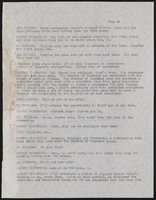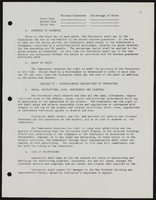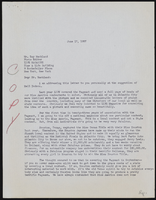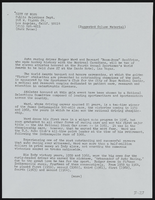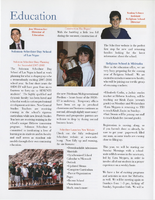Search the Special Collections and Archives Portal
Search Results

Biographical essay by Judy Newman, 2014
Date
Archival Collection
Description
Judy Newman describes her early life in an orphanage in Poland, and went to Israel in the 1950s, where she met her husband.
Text
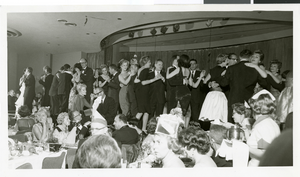
Photograph of guests dancing in the Copa Showroom, Las Vegas, circa 1950s-1960s
Date
Archival Collection
Description
Image

Ron Lurie campaign materials and resume, item 02
Description
Re-elect Ron Lurie City Commissioner pamphlet

Ernest Oon oral history interview: transcript
Date
Archival Collection
Description
Oral history interview with Ernest Oon conducted by Cecilia Winchell, Stefani Evans, and Jerwin Tiu on February 16, 2023 for the Reflections: the Las Vegas Asian American and Pacific Islander Oral History Project. In this interview, Oon recalls his childhood in Singapore, where his father worked on the Health and Sports Council for the Singaporean Government and his mother worked as a television assistant producer. Growing up, Oon recalls being very active, participating in everything from soccer to Tae Kwon Do. In an effort to continue his education without being being interrupted by Singapore's civil service program, Oon applied to college in the United States and ended up attending California State University. Although he was on the medicine track in Singapore, he switched to finance. After a series of jobs within credit banking, he is now a chief credit officer for Bank of Nevada. Throughout the interview, Oon reflects on the changes in his life living in different places, the street food from Singapore, and his unique tennis game.
Text


